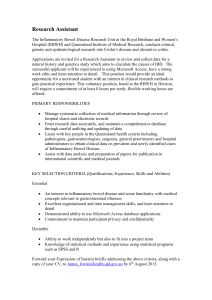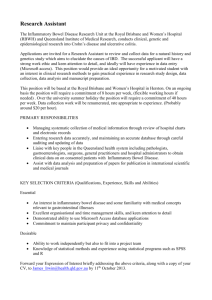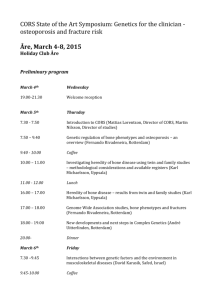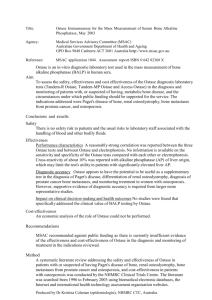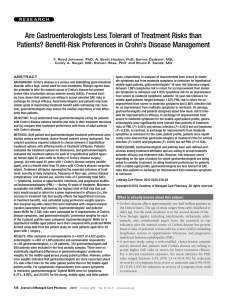sudarshan_54_20130611061558
advertisement
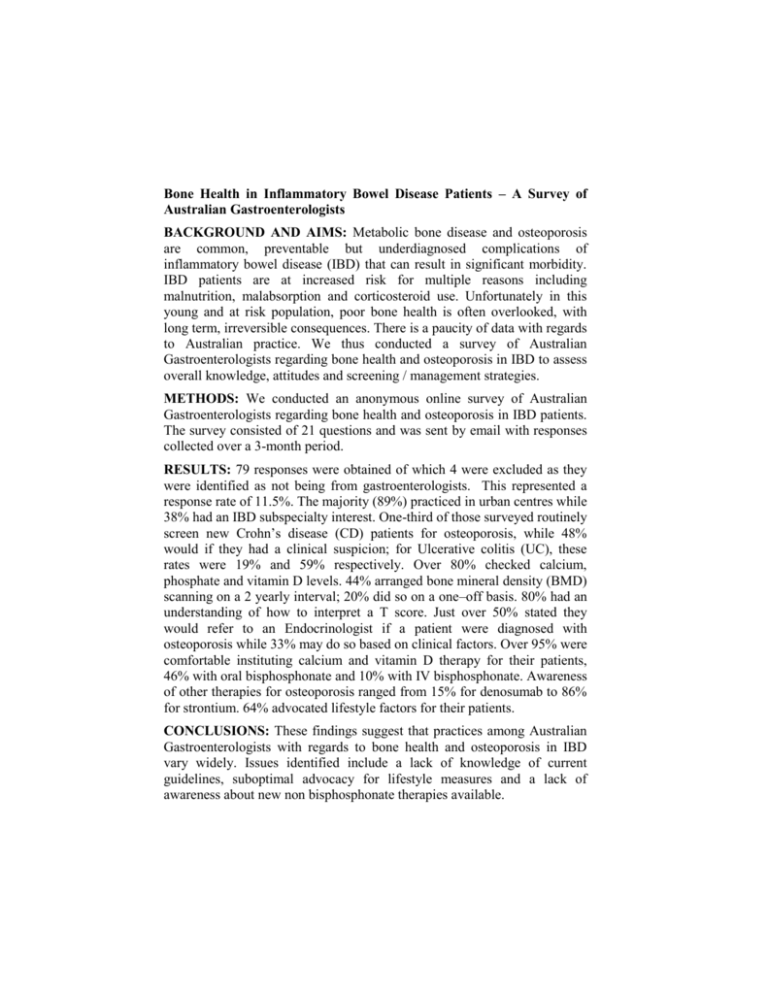
Bone Health in Inflammatory Bowel Disease Patients – A Survey of Australian Gastroenterologists BACKGROUND AND AIMS: Metabolic bone disease and osteoporosis are common, preventable but underdiagnosed complications of inflammatory bowel disease (IBD) that can result in significant morbidity. IBD patients are at increased risk for multiple reasons including malnutrition, malabsorption and corticosteroid use. Unfortunately in this young and at risk population, poor bone health is often overlooked, with long term, irreversible consequences. There is a paucity of data with regards to Australian practice. We thus conducted a survey of Australian Gastroenterologists regarding bone health and osteoporosis in IBD to assess overall knowledge, attitudes and screening / management strategies. METHODS: We conducted an anonymous online survey of Australian Gastroenterologists regarding bone health and osteoporosis in IBD patients. The survey consisted of 21 questions and was sent by email with responses collected over a 3-month period. RESULTS: 79 responses were obtained of which 4 were excluded as they were identified as not being from gastroenterologists. This represented a response rate of 11.5%. The majority (89%) practiced in urban centres while 38% had an IBD subspecialty interest. One-third of those surveyed routinely screen new Crohn’s disease (CD) patients for osteoporosis, while 48% would if they had a clinical suspicion; for Ulcerative colitis (UC), these rates were 19% and 59% respectively. Over 80% checked calcium, phosphate and vitamin D levels. 44% arranged bone mineral density (BMD) scanning on a 2 yearly interval; 20% did so on a one–off basis. 80% had an understanding of how to interpret a T score. Just over 50% stated they would refer to an Endocrinologist if a patient were diagnosed with osteoporosis while 33% may do so based on clinical factors. Over 95% were comfortable instituting calcium and vitamin D therapy for their patients, 46% with oral bisphosphonate and 10% with IV bisphosphonate. Awareness of other therapies for osteoporosis ranged from 15% for denosumab to 86% for strontium. 64% advocated lifestyle factors for their patients. CONCLUSIONS: These findings suggest that practices among Australian Gastroenterologists with regards to bone health and osteoporosis in IBD vary widely. Issues identified include a lack of knowledge of current guidelines, suboptimal advocacy for lifestyle measures and a lack of awareness about new non bisphosphonate therapies available.
